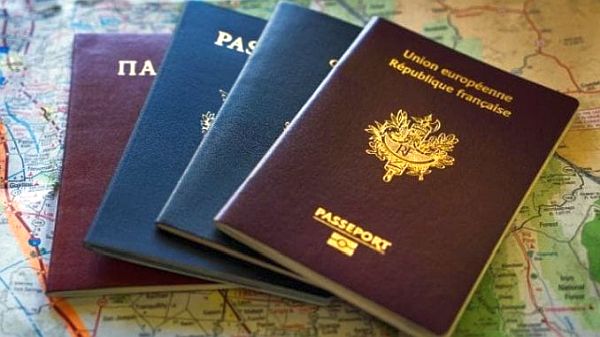Already a powerful tool, a second passport can protect the holder from political upheaval at home, allow access to investment and career opportunities overseas, and facilitate the crossing of international borders with ease.
Now a new report by the editors at InternationalLiving.com highlights how changing visa rules could make a second passport even more useful for U.S. citizens.
With a second passport, the holder is no longer dependent on any one country and gains greater freedom to travel.
"If you are a U.S. citizen, or a permanent resident alien (green card holder) an important point to know is that under U.S. law, having a second passport does not jeopardize your citizenship," says second passport expert, Bob Bauman. "It is fully legal for a U.S. citizen to hold two or more citizenships, based on rulings by the Supreme Court."
When considering acquiring a second passport, a key factor often overlooked is the visa-free travel possibilities a specific national passport offers.
In a globalized world economy, the need for greater visa-free access has grown. Across the economic spectrum, individuals wish to avoid travel constraints to access business, financial, career, and lifestyle opportunities worldwide. But the U.S. has limited the number of countries with which it has visa-free travel agreements.
"After the 9/11, 2001 terror attacks, the U.S. government toughened visa requirements for visitors from nations previously free to come to America without a visa," says Bauman. "While there is justification for increased scrutiny at American borders, the government made entry to the U.S. difficult for millions of foreigners in hopes of deterring terrorists."
 |
"In late March, President Donald Trump's administration proposed a new rule that would require many people applying for a U.S. visa to list their social media accounts before being granted entry," Bauman explains. "Applicants will be required to submit details of any accounts held in the preceding five years on sites such as Twitter, Facebook, YouTube, and LinkedIn."
An estimated 14.7 million people a year would be affected by the rule, which includes submissions for both immigrant and non-immigrant visitor visas.
Those countries that have visa-free travel agreements with the U.S., such as the United Kingdom, would not be affected, but non-exempt countries such as China, India, and Mexico would be hit.
"Now, picture how that could work the other way around," Bauman says. "Countries without visa-free travel arrangements with the U.S. might impose similar restrictions - either as a reaction or for reasons of their own - and suddenly your U.S. passport makes it difficult to get in."
This is where a second passport can come to the rescue. If you hold multiple passports from countries that have varying visa-free travel arrangements, then you are insured against negative effects from changing visa laws.
"A country you want to visit, live, or do business in suddenly decides to restrict U.S. citizens from entry? Simply travel on your European or Caribbean passport and you can breeze through customs without a second glance."
It's just one of the many ways that having a second passport can make life easier for those with interests overseas.
Though not commonly known, the legal right to dual citizenship - and with it the right to obtain and employ a second passport - is available to millions of people worldwide.
And obtaining a second passport may not be as difficult as you think. There are three main routes to acquiring one:
A. By place of birth - where the laws of the country in which a child is born make them a citizen automatically, as in the U.S., where the 14th Amendment does this. This principle is expanded by what is known as "sanguinity" (blood relationship) citizenship based on that of one or both parents, or even grandparents in some countries, such as Ireland and Italy. This relationship is perhaps the easiest and fastest route to a second passport.
B. By official naturalization - which usually involves a specific period of prior residence in the country. Almost all countries have a route for foreigners to obtain permanent residence, linked to marriage, a job, starting a business, or other commitment to the country. On average, this means living in the country for five years.
C. By purchasing economic citizenship - this usually involves an investment in the country or payment of a substantial fee. Some countries offer this in exchange for investment in real estate, starting a business, or payment to the government. Among these countries are St. Kitts and Nevis, Dominica, Cyprus and Malta. These citizenships involve extensive due diligence and investigation.
A second passport could be key to a whole new world of freedom, greater flexibility, and adventure. More information on second passports can be found HERE.
For 39 years, InternationalLiving.com has been the leading authority for anyone looking for global retirement or relocation opportunities. With more than 200 correspondents traveling the globe, investigating the best opportunities for travel, retirement, real estate and investment, InternationalLiving.com provides information and services to help its readers live better, travel farther, have more fun, save more money, and find better business opportunities when they expand their world beyond their own shores.


